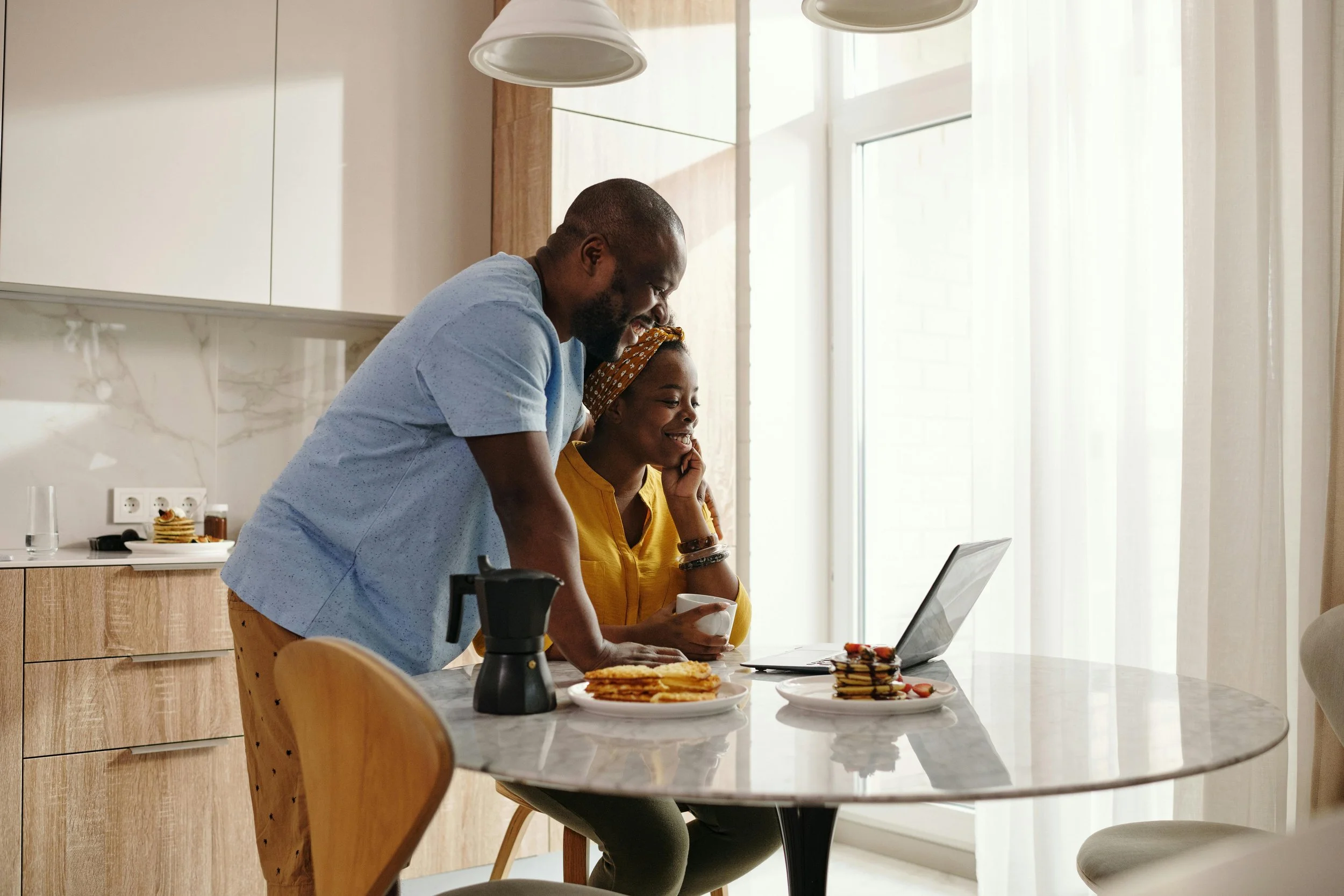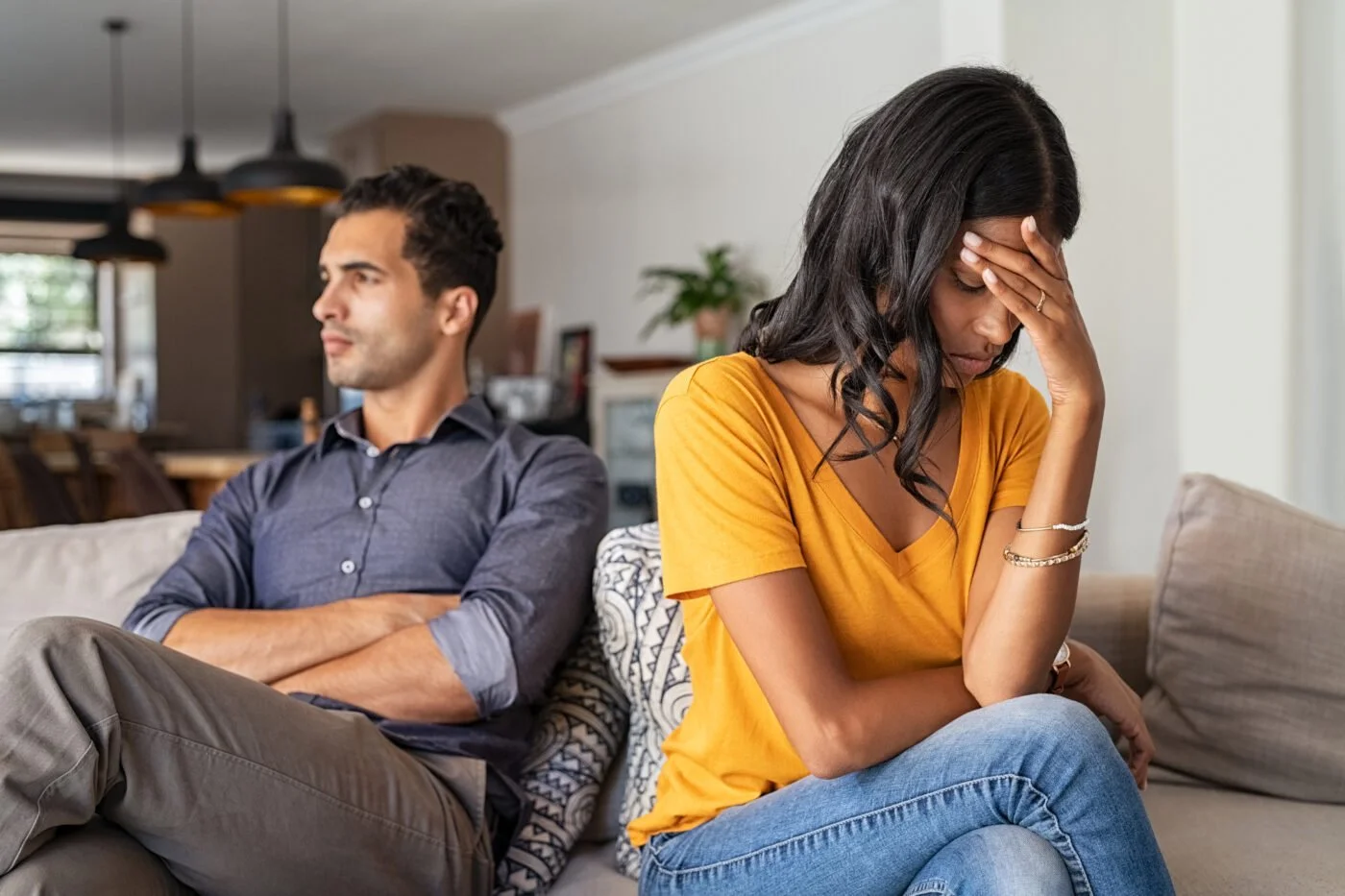Can Couples Therapy Actually Work? Here’s When It Does.
Tips From an Experienced DMV Couples Counselor
When It Feels Like Nothing Will Change
Most people don’t start couples therapy because things are going well. They start because something feels broken. They’re exhausted by the emotional distance, the fights and the way small things seem to always turn into blowups. When you’ve been stuck in the same patterns for so long, it can feel like nothing will help. Like maybe your relationship is just too far gone.
I get it. You’ve tried talking it out, reading books and listening to podcasts. You’ve talked to friends and made commitments to do better, but the same arguments keep coming back. You’ve over it.
I’ve worked with dozens of couples (some coming in on the verge of ending things) and I’ve seen therapy work. It doesn’t work for everyone, but when both people are really willing to show up and do the work, it can change everything.
In this post, I’m going to break down exactly what I’ve seen make the biggest difference in couples therapy and how to make changes that last.
What Makes Couples Therapy Actually Work?
Couples therapy isn’t magic. It’s not just about showing up and venting your feelings. What actually moves the needle is how you show up and what you’re willing to do once you’re there.
If you’re asking, “Can this really help us?”, here’s what I’ve seen work, over and over again.
8 Things That Make the Biggest Difference
1. Both people show up and stay engaged.
Therapy doesn’t work if only one person is trying. You both have to be present, emotionally and mentally. That means being open to the process and willing to try, even when it feels uncomfortable.
2. You stop blaming and start taking responsibility.
Finger-pointing keeps couples stuck. The moment each person starts owning their part—even just a little—is usually the moment things begin to shift.
3. You’re willing to take correction.
A large part of my role as a couples therapist is stepping in when things start to get tense and saying something like:
“Let’s soften that a little bit. How about you say it this way instead?”
or
“Let’s pause. How can you take full accountability here?”
or
“Conveying respect here would look like…”
This kind of real-time coaching helps partners experience what healthy, respectful communication actually feels like. It’s not about shaming or policing anyone’s words. It’s about helping you both speak in a way that gets your message across without triggering the other person’s defenses.
Couples therapy works when both people are open to that kind of adjustment. If you’re open to being guided, redirected and supported as you learn new patterns, real progress is absolutely possible.
4. You’re honest and transparent.
Therapy is a space where you have to bring the truth. That includes what you’re feeling, what you’ve done, and what you’ve avoided. If you’re not telling the truth, therapy can’t help you.
5. You’re open to trying new things, even when it feels weird.
Most of what I teach in couples counseling, especially tools like the Imago Dialogue, is completely different from how you’ve been communicating. It might feel awkward at first or even forced. That’s completely normal.
When couples start practicing these techniques, they often say things like,
"This feels so unnatural," or "We’ve never talked like this before," and they’re right. This stuff is new and weird, but it also works in the most incredible way.
If you’re coming to therapy, chances are what you’ve been doing hasn’t been working. So the goal isn’t to feel comfortable right away. It’s to be willing to try something different, even if it feels clunky at first. That openness to being guided, to stretching a little and to doing something unfamiliar, is what makes room for real change.
6. You’re willing to be vulnerable.
Underneath anger is often hurt, fear, sadness or other deep emotions. When you can show your partner what’s really going on inside, they often soften. Vulnerability creates the opportunity for true connection.
7. You commit to being the partner your partner needs.
This doesn’t mean ignoring your own needs. It just means making space for theirs, too. In the strongest relationships, both people are trying to meet each other’s needs instead of keeping score.
8. You stay respectful.
You don’t have to like your partner every second, but remaining respectful in how you speak to each other, how you argue and how you show up when it’s tense, matters a lot.
9. You ask for what you need.
Most people expect their partner to just “know.” That’s not realistic. Clarity builds connection. While it would be nice if your partner could read your mind, our job is to teach our partner how we need to be loved. Learning how to ask directly and calmly for what you need is how that education happens and can dramatically transform your relationship.
10. You reconnect after hard conversations.
The argument isn’t the end. How you come back together after a fight can matter more than the content of the fight itself. Do you check in? Offer comfort? Apologize? Ask for what you need to feel close again? These small moments matter more than you think.
When One Partner Isn’t Sure
Sometimes, one person is leaning in and the other is halfway out the door. That’s common and it doesn’t mean all is lost.
In these situations, I often recommend discernment counseling, a short-term process that helps both partners figure out whether to keep trying or walk away. It’s not about fixing the relationship right away. It’s about quickly getting clarity.
So if one of you isn’t sure, you don’t have to fake it. You can be honest about that and still show up in a way that helps both of you make the best decision.
You Deserve a Relationship That Feels Good.
I’ve worked with couples who were barely speaking when they started and left therapy feeling like partners again.
At Poole Conflict Solutions, we specialize in helping high-conflict couples and overwhelmed new parents repair communication, rebuild trust and reconnect emotionally. Whether you’re trying to make things work or just figure out what comes next, we’re here for you.
We offer discreet, specialized couples therapy in Maryland, Virginia, and Washington, DC. Limited in-person sessions are available in Columbia, MD.
If you’re ready for a change, let’s talk.



